DISCLAIMER: Filmmaker Sion Sono has been accused of sexual harassment and abuse by several actresses in Japan’s film industry. To learn more about these allegations, please read this report by Variety and visit this Twitter thread by actor Yuki Matsuzaki.
Filmed in Ether does not tolerate any form of sexual misconduct and condemn those that abuse their positions of power. In light of these allegations, Filmed in Ether will no longer produce any coverage and publicity for any of Sion Sono’s films, new and old, moving forward.
As we are an Australian-based publication, please seek out these Australian support services if news of Sono’s allegations have caused you distress.
Sion Sono emerges from Japan as one of the most frequently compelling contemporary directors to work in the country today (or any where else for that matter!). The maverick Japanese director remained relatively unknown in the west for many years, despite a few noticeable cult hits which had ridden along the coat tails of other Japanese horror hits. The most infamous of these was his 2001 feature Suicide Club, a film about the sudden rise of suicides in Japan and a detective’s investigation into it. His films have the power to shock and awe much in the same way that Takashi Miike might have achieved during his peak as an independent filmmaker but to say that he is the heir to Miike’s throne is selling Sono a little short.
Sono is indeed his own filmmaker and though his films might appear to be nothing less than exploitative features, they’re backed by some surprisingly weighty ideas and intelligent insight. One could almost say that by dressing his films up with extreme imagery and adding an aesthetic that feels exploitative, it baits the viewer into acknowledging the larger ideas Sono addresses. It’s high-art made to look and feel like low-art and Sono knows this given his recurring homages to Japan’s history of pink films (Japan’s own exploitation film). Even his association with Nikkatsu, a Japanese film studio once famous for releasing pink films, is proof of this.
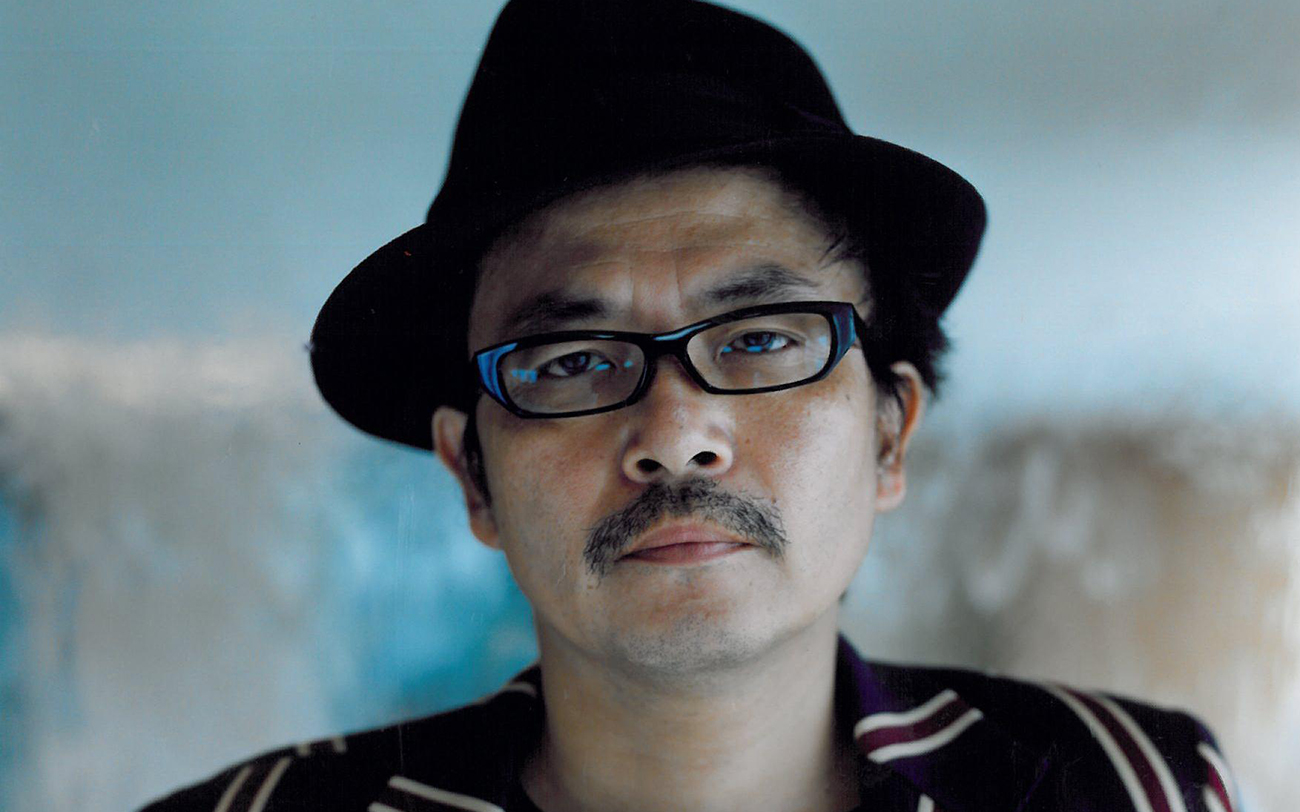
His self-proclaimed ‘Hate’ Trilogy, made up of Love Exposure (2008), Cold Fish (2010) and Guilty of Romance (2011) are three diabolically rich films that rank highly among the auteur’s line of signature works. The foundations these films are built upon include Sono’s observations on the emotions of love and, appropriately enough, hate. Being that these are the most extreme emotions we as people can display towards another person, Sono strongly believes that the two emotions go hand in hand, adding that that those who hate themselves, their immediate environment or hate the world are the most deserving of love.
It’s an idea that’s explored across all three of his ‘Hate’ films and to some extent has been further espoused with his 2012 film, Himizu. More interestingly is how Sono’s trilogy suggests that these intangible emotions, which tie into the fabric of our own morality, can easily become warped. Sono achieves this by examining the effect that religion, sex and violence all have on his character’s perception of love.
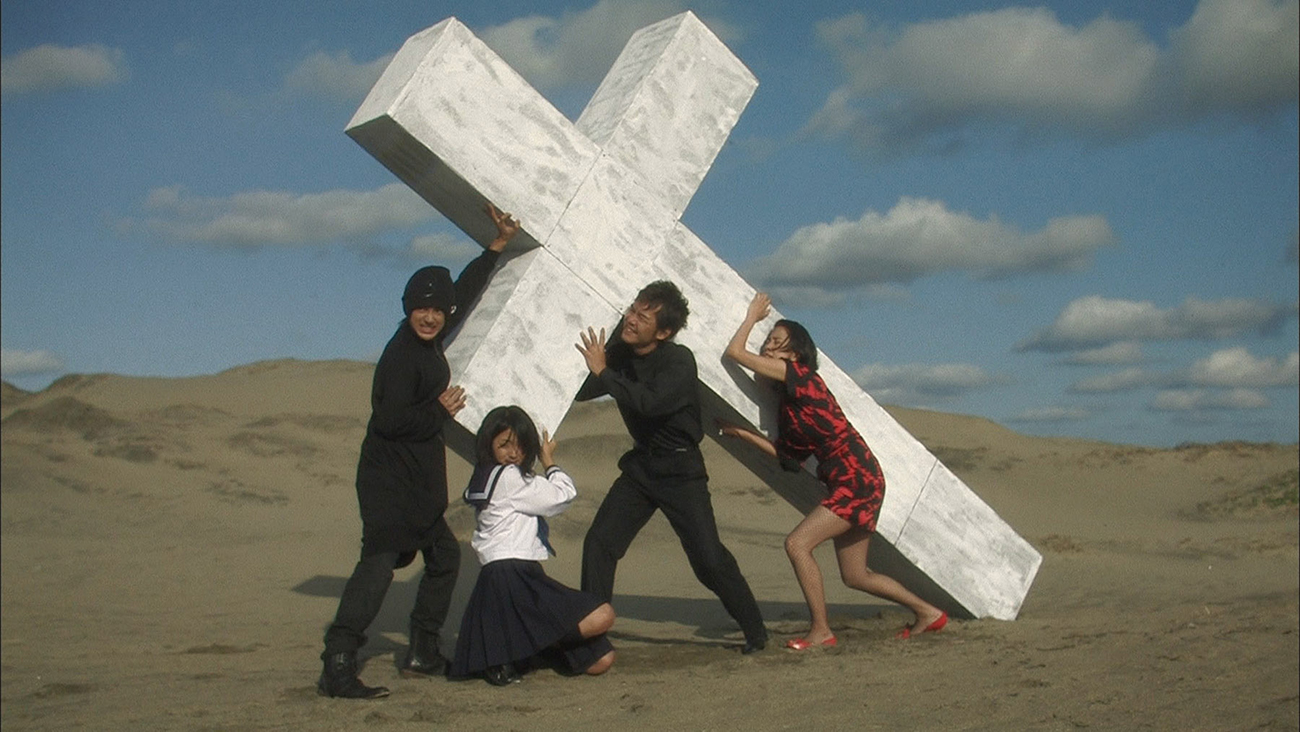
Love Exposure (2008)
In Love Exposure, the first film in the trilogy, Sono uses the popular high school romantic-comedy genre and adds his own patented twist on it by adding a hefty amount of religious connotations all throughout. Whether through an accepted religion like Christianity or through cults such as the film’s fictional Zero Church, Sono uses the subject as a means to distort his characters’ views on love. Yu’s idea of love, tied to his evangelical mother, is to find someone as pure-spirited as the Virgin Mary; Yu’s father, a priest, struggles with his desire to love and feel love once his wife passes away; Yoko’s doubts towards her sexuality conflict with her religious beliefs; and Koike, who for all intents and purposes is the film’s villain, is essentially programmed to view love (or more specifically sex) as a sin which ultimately forms the basis of her entire character in the film. Love Exposure essentially deconstructs religion, accepted or otherwise, in epic fashion across its four hour runtime, which Sono achieves so effortlessly.
Throughout history, people have interpreted religious texts differently. Some have taken it literally, others find a metaphorical meaning behind it while many more bend scripture to fit their own agenda. Koike’s father, who in the film is said to be a very prominent Christian figure, is one example of a character who bends religion to fit his own goals. In the film, he disciplines his daughter by beating her into submission, forcing her to align her beliefs with his. A character like hers is entirely pitiable, as we can see from her brief backstory in her own chapter, and is among the number of damaged characters that Sono wants to try to protect.
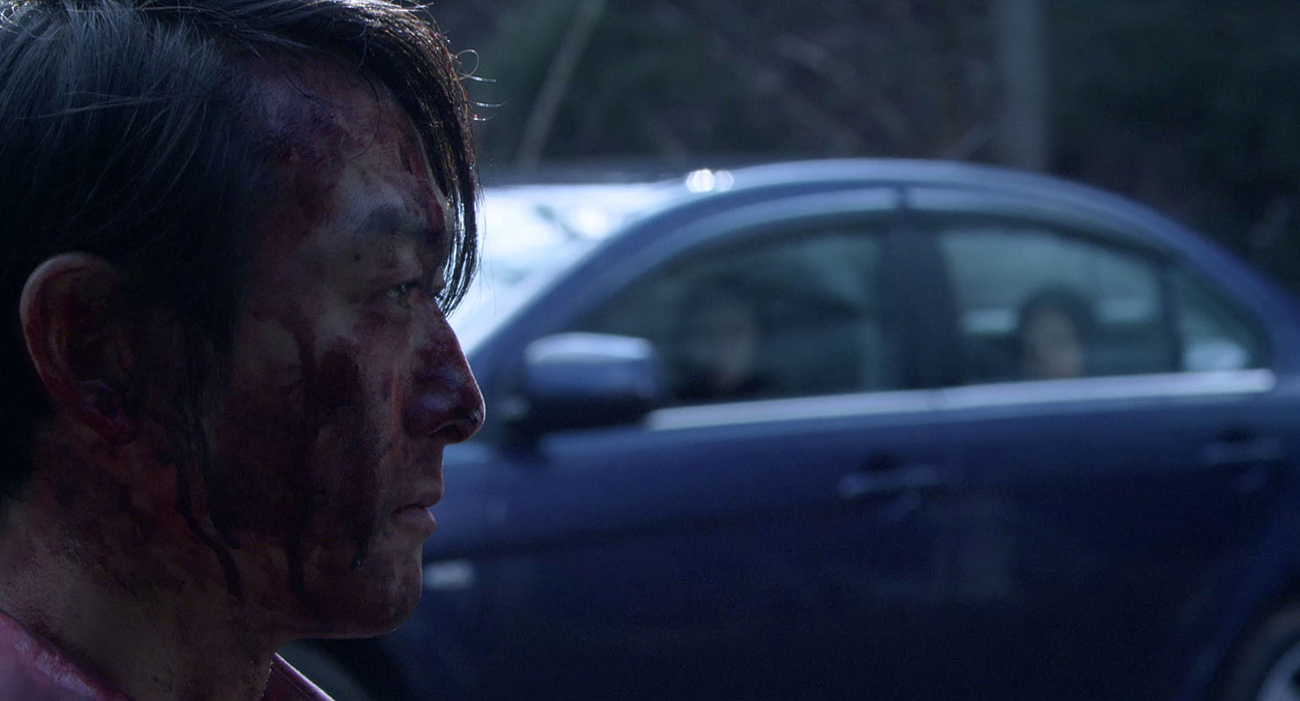
Cold Fish (2010)
Cold Fish, arguably the director’s most harrowing film to date, sees Nobuyuki, a mild-mannered fish store owner, become driven into his own personal hell during the course of the film. Through a series of unfortunate incidents, Nobuyuki slowly becomes detached with the environment around him and eventually transforms into the killer that Yukio, the film’s antagonist, has goaded him into becoming through the majority of the film.
Of the three films in the ‘Hate’ trilogy, Cold Fish is Sono at his most hopeless and its bleak cinematography suggests as much – it constantly feels like a trap designed to ensnare its central character, Nobuyuki. In the end, the weak-willed Nobuyuki accepts his new identity and uses violence and aggression as a way for to exact the love he thinks he deserves upon his family by forcing them to sit through a ‘normal’ dinner with him. His daughter hates him for marrying immediately after his previous wife passed away while, his new wife, unsatisfied with the result of their marriage, regrets marrying him in the first place. His family’s disdain is only further exacerbated by the presence of Yukio who causes further dissension between Nobuyuki and his family by manipulating them. In the end, Nobuyuki declares to his daugher that “life is pain” and it certainly appears that way for Nobuyuki who, after having to become an accomplice to Yukio’s murdering spree, may feel like as though those who behave immorally are the only ones capable of finding success in life and love.
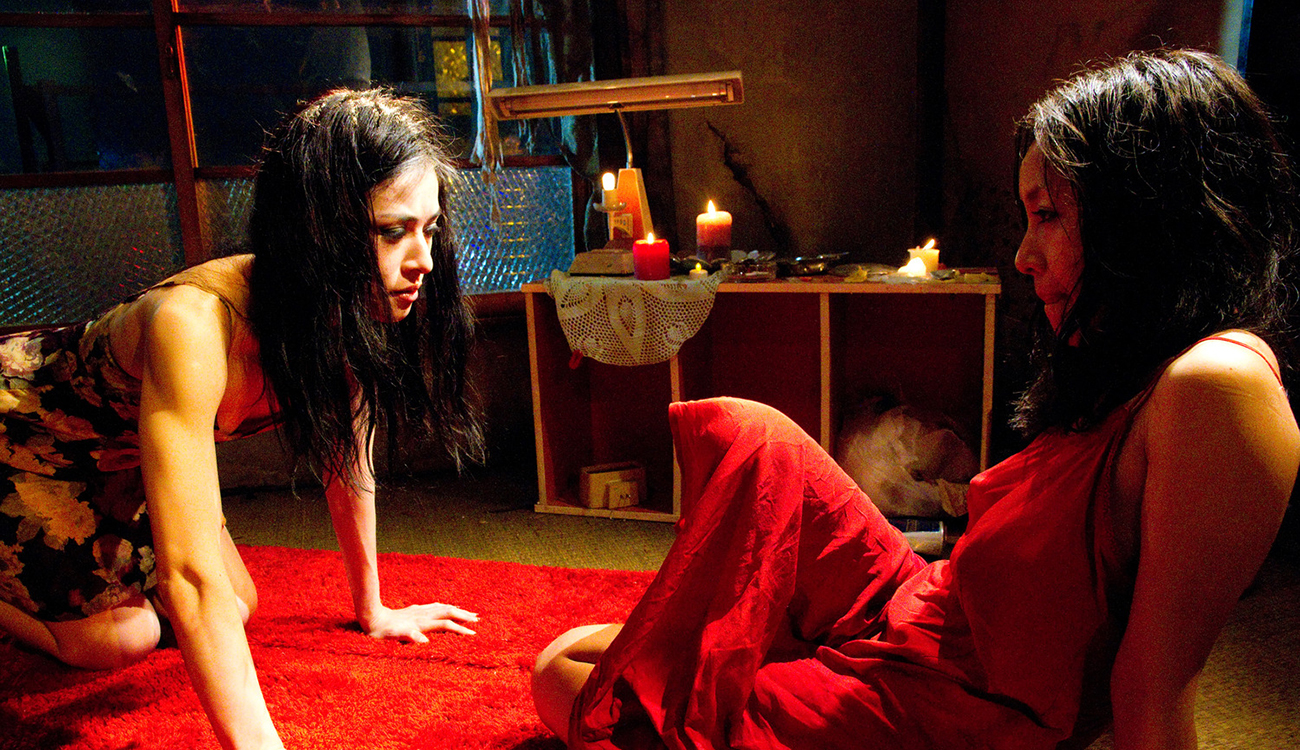
Guilty of Romance (2011)
Finally there’s Guilty of Romance, the closing chapter of Sono’s ‘Hate’ trilogy and possibly his most intriguing. The cutthroat crime-noir-thriller plays like a Natsuo Kirino novel and establishes a world where women are at the centre of it. Unlike Cold Fish, Guilty of Romance is washed in bright neon colours and suggests a tale that’s more provocative than daunting. And if Cold Fish was Sono at his most hopeless, Guilty of Romance is the director at his most angry. The women of Guilty of Romance are massively pissed off and through sex, take back their sexuality from the men who deprived them of it. Sex, the ultimate act of showing love and affection, is turned into an act done out of spite.
Izumi, one of the film’s main characters, uses sex as a means to regain the independence she lost by becoming her husband’s servant. This materialises in the form of her new sexually active identity which is awakened after she is mistakenly lured into filming an adult video. She soon meets the film’s most interesting character Kazuko, a devious nymph who by day works as a literary professor and moonlights as a prostitute in the night. Their meeting plunges Izumi further into a decadent world of sexual intrigue.
The deeper down into the rabbit hole Izumi goes however, the more the film’s agenda rises to the surface. Sono’s Guilty of Romance champions women (perhaps even fears them) and, in a world where its characters and environment feel very masculine, it’s the women who invariably hold all the power.
“Strangely enough, men value women who fuck for free. They look down on women who ask for money,” says Kazuko who expands by explaining to Izumi that if she should have sex with someone she doesn’t love, then she ought to be compensated in money. Kazuko respects the power that she has over men too much and refuses to let it go to waste by offering herself for free which is partly why she imparts her belief onto Izumi. The act of ‘making love’, now reduced to a cold transaction, does grant Izumi a modicum of sexual liberation but lacks the commitment she would expect from someone who she loves and would love her back. The old saying of ‘money can’t buy you happiness’ rings true for Izumi who by the end of the film finds out that her husband has, this whole time, been giving his sexual attention to prostitutes instead of her.
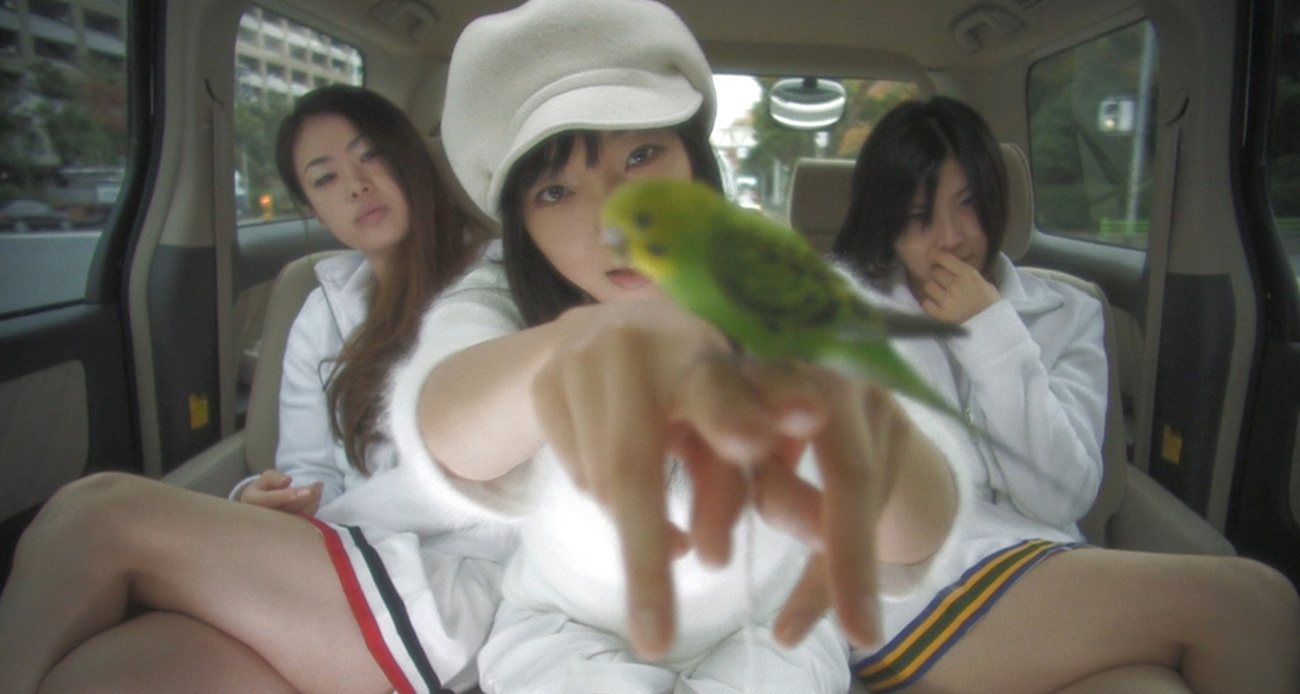
Nihilistic doesn’t even begin to describe the attitude that Sono endows his films with; Sono’s worlds are dark and maddeningly confusing places for his characters as they seek to find the truths in their lives. His ‘Hate’ trilogy has offered to Japanese cinema some of its most fascinating characters written and performed on screen and given plenty of rich, satisfying subtext for viewers to think about.
Sono is unafraid to venture into territory that other filmmakers are too hesitant to brave which makes him all the more noteworthy, as he’s able to get people to talk about uncomfortable subjects. He successfully manages to commentate and deconstruct so many different things, including love, in his ‘Hate’ trilogy and does so with sheer ease and tight direction. With the ‘Hate’ trilogy, Sono forthrightly shows that his is a cinema of perversion; cinema that is unafraid to stimulate, provoke and confront viewers.
